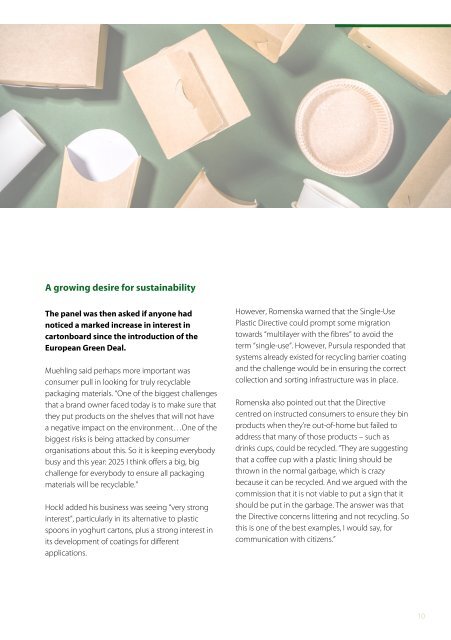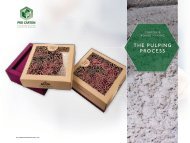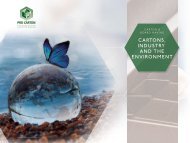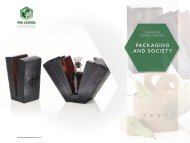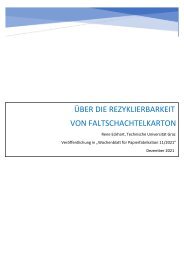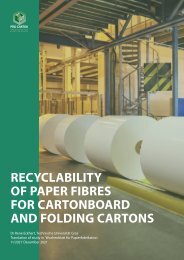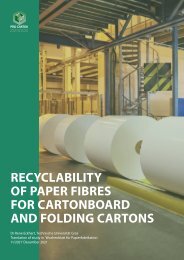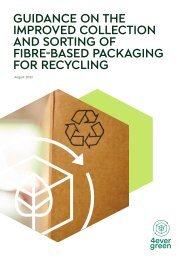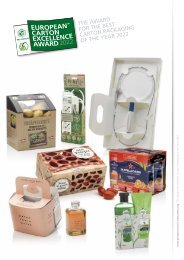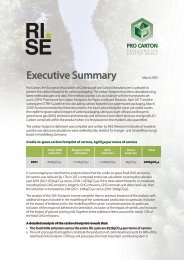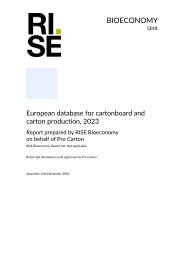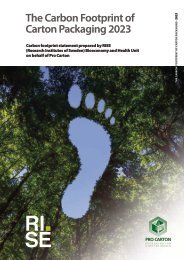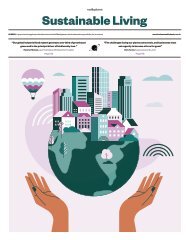Create successful ePaper yourself
Turn your PDF publications into a flip-book with our unique Google optimized e-Paper software.
A growing desire for sustainability<br />
The panel was <strong>the</strong>n asked if anyone had<br />
noticed a marked increase in interest in<br />
cartonboard since <strong>the</strong> introduction <strong>of</strong> <strong>the</strong><br />
European <strong>Green</strong> <strong>Deal</strong>.<br />
Muehling said perhaps more important was<br />
consumer pull in looking for truly recyclable<br />
<strong>packaging</strong> materials. “One <strong>of</strong> <strong>the</strong> biggest challenges<br />
that a br<strong>and</strong> owner faced today is to make sure that<br />
<strong>the</strong>y put products on <strong>the</strong> shelves that will not have<br />
a negative impact on <strong>the</strong> environment…One <strong>of</strong> <strong>the</strong><br />
biggest risks is being attacked by consumer<br />
organisations about this. So it is keeping everybody<br />
busy <strong>and</strong> this year: 2025 I think <strong>of</strong>fers a big, big<br />
challenge for everybody to ensure all <strong>packaging</strong><br />
materials will be recyclable.”<br />
Hockl added his business was seeing “very strong<br />
interest”, particularly in its alternative to plastic<br />
spoons in yoghurt cartons, plus a strong interest in<br />
its development <strong>of</strong> coatings for different<br />
applications.<br />
However, Romenska warned that <strong>the</strong> Single-Use<br />
Plastic Directive could prompt some migration<br />
towards “multilayer with <strong>the</strong> fibres” to avoid <strong>the</strong><br />
term “single-use”. However, Pursula responded that<br />
systems already existed for recycling barrier coating<br />
<strong>and</strong> <strong>the</strong> challenge would be in ensuring <strong>the</strong> correct<br />
collection <strong>and</strong> sorting infrastructure was in place.<br />
Romenska also pointed out that <strong>the</strong> Directive<br />
centred on instructed consumers to ensure <strong>the</strong>y bin<br />
products when <strong>the</strong>y’re out-<strong>of</strong>-home but failed to<br />
address that many <strong>of</strong> those products – such as<br />
drinks cups, could be recycled. “They are suggesting<br />
that a c<strong>of</strong>fee cup with a plastic lining should be<br />
thrown in <strong>the</strong> normal garbage, which is crazy<br />
because it can be recycled. And we argued with <strong>the</strong><br />
commission that it is not viable to put a sign that it<br />
should be put in <strong>the</strong> garbage. The answer was that<br />
<strong>the</strong> Directive concerns littering <strong>and</strong> not recycling. So<br />
this is one <strong>of</strong> <strong>the</strong> best examples, I would say, for<br />
communication with citizens.”<br />
10


